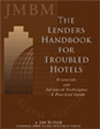|
b
How "standards" can protect your hotel mixed-use assets... | By Catherine DeBono Holmes
Mixed-use can be a key to unlock value. But "standards" can be critical to protect the value of your hotel mixed-use asset

Some years ago, we coined the term "hotel-enhanced mixed-use" to
describe those dynamic mixed-use properties where the hotel acts as the
"spark plug" that energizes the entire project.
Hotels can be the
"ultimate amenity" for mixed-use projects because they can distinguish
the project, provide a great driver of traffic, and offer an integrating
hub for residential and retail customers.
Since that time, we have seen hotels in successful mixed-use
properties achieve RevPAR premiums of 30% to 40%. But these success
stories are written about hotel developers and brands that understood --
on the front end -- that quality control had to be hard-wired into the
regime. Hotel owners and hotel brands that failed to do that so have not
been so lucky.
In her article below, which was recently published by Hotel Business,
hotel lawyer Catherine Holmes, a senior member of the JMBM Global
Hospitality Group®, offers experienced advice on how you can "Protect
your mixed-use asset by creating and maintaining standards."
Protect your mixed-use asset by creating and maintaining standards
Catherine Holmes | Hotel Lawyer, JMBM Global Hospitality Group®
Mixed-use hotel projects offer benefits to hotel owners around the world.
Our client, Steven Pan, chairman of Regent Global Holdings and the
owner of the Regent hotel brand, was recently interviewed in the Wall
Street Journal. In the interview, Steven talked about the value added to
his Grand Formosa Regent Hotel in Taipei by its luxury retail shopping
mall and branded residential apartments. Confirming his experience, some
studies have shown that hotels adjacent to retail shopping achieve a
RevPAR premium of 30% to 40%.
The newest resorts in Hawaii, including the Trump International Hotel
& Tower, Waikiki Beach Walk, feature condominium suites and
residences. The benefits of offering hotel branded residences are borne
out by some studies showing that they can achieve a 25% to 35% premium
on sale price per square foot over unbranded residences. The synergies
of hotels with retail and residential uses are likely to result in more
mixed-use hotel projects in the future in Asia, the Caribbean and the
Americas.
All of the areas of a hotel mixed-use project reflect on the quality of the hotel and the brand.
As the saying goes, "You're only as good as the company you keep." A
luxury hotel surrounded with discount stores will inevitably tarnish the
image of the hotel and its brand name. Or, imagine a resort hotel with a
dozen or more housekeeping vendors arriving in cut-off shorts and
T-shirts at any hour of the day or night at the hotel to clean hotel
units -- this is exactly what did happen in some of the early
condominium hotels in Florida.
How can the hotel owner or
hotel brand maintain quality control if units in a mixed-use project are
sold or leased to multiple owners and lessees? As long as
there is a single owner of a mixed-use hotel project, the owner and the
hotel operator can decide between themselves what the hotel quality
standards will require for the entire project. Complications arise when,
as is typical, the hotel owner sells individual hotel, residential or
commercial units in the project to multiple purchasers. The hotel owner
and hotel operator will need to build in controls on unit owners that
will last throughout the life of the project, and will be binding not
only on the original purchasers of units, but on subsequent purchasers
as well.
Here are some of the ways that hotel owners and hotel
operators can protect the hotel quality standards in a mixed-use hotel
project with multiple owners:
Commercial Units
-
Establish controls on the types of retailers and restaurants
-- the project documents (particularly the condominium documents that
will be binding on all owners and subsequent purchasers of units in the
project) should specifically prohibit those types of businesses that
would not be consistent with the brand image (which may include such
businesses as discount stores, second hand stores and liquor stores),
and may also include a requirement that the businesses permitted will
conform to the image of the brand, giving the hotel operator the right
to decide on a case-by-case basis. Since studies show shopping is an
important activity for travelers (including one study reporting that 32%
of U.S. domestic leisure travel activities were spent on shopping and
81% of all U.S. domestic travel is for leisure purposes), the hotel
operator should consider the types of retail establishments at a
mixed-use hotel project an important part of the guest experience at the
hotel.
-
Establish rules for providers of commercial unit maintenance services
-- the project documents should allow the hotel operator to set rules
for third party maintenance service providers, including requirements
for uniforms, hours of providing service, background checks of
personnel, insurance and bonding.
-
Establish requirements for maintenance that affect other parts of the project
-- anything that can be seen or that can affect other parts of the
project should be regulated through the project documents. For example,
fumigation requirements, signage restrictions, storage restrictions, and
noise restrictions. Many of these restrictions are typical in
condominium regulations, but in a hotel project, the hotel operator may
want to go a step farther and allow the hotel operator to adopt
modifications to the regulations of the project as necessary to address
new problems as they arise, without the need for action by the board of
directors or owners of the project.
-
Require hotel operator approval of leases of commercial units and give the hotel operator the right to enforce the lease terms
-- any lease of a commercial unit should require the lessee to maintain
the standards required of owners in the project. In addition, every
lease should give the hotel operator the right to enforce the lease, to
assure that if any owner of a unit does not enforce the obligations of a
lessee, the hotel operator has the right to do so on its own behalf,
without the cooperation of the unit owner.
-
Establish penalties that the hotel operator can enforce quickly at little or no cost
-- the hotel operator needs to be able to act quickly and inexpensively
if a unit owner or lessee violates the quality control regulations of
the project. Consider whether in addition to monetary penalties, (which
can be costly and take too much time to enforce) local laws allow the
hotel operator to deny use of common areas, turn off utilities and take
other actions to restrict access or use of the unit, in addition to
monetary penalties, which can be costly and take too much time to
enforce.
Residential Units
In addition to all of the suggestions mentioned above for Commercial
Units, Residential Units should be subject to the following:
Don't allow short term rentals of residential units unless
they meet the same FF&E and maintenance standards as the hotel units
- anyone who rents a unit in the project will expect the quality of the
unit to be consistent with the quality standards of the entire hotel.
If a residential unit owner does not want to meet those standards, they
should not rent their units to transient guests. In the early days of
condominium hotels when there were no requirements on unit owners to
maintain brand standards in their individual units, hotel operators
would sometimes give an unsuspecting guest an "unwelcome letter,"
advising them that they had just rented a unit from someone in the hotel
whose unit did not meet the hotel's standards. This of course did
nothing to improve the image of the hotel in the eyes of the unhappy
guest.
Hotel Units
Hotel Units are intended to be rented, and for all projects where
U.S. investors or the U.S. securities laws apply, hotel unit owners
cannot be restricted from renting their units through any rental service
they choose. However, this does not mean that hotel unit owners should
not be required to maintain their units in a manner consistent with the
hotel brand standards. To accomplish this:
All hotel units should be required to receive hotel services
- even if a hotel unit is not included in the hotel operator's rental
program, all hotel units should be required to look the same as other
hotel units, with the same FF&E and OS&E, and receive the same
hotel cleaning and maintenance services. The best way to enforce these
requirements is to require every hotel unit owner to enter into a hotel
unit maintenance agreement. A key feature of the unit maintenance
agreement is the requirement that all hotel guests pay for rental of the
hotel unit at the front desk, and that the front desk is authorized to
deduct the cost of the unit maintenance from the rental revenues
remitted to the hotel unit owner.
Catherine DeBono Holmes
is a hotel lawyer with JMBM's Global Hospitality Group® and specializes
in resort and hotel purchase and sale transactions, resort and urban
mixed-use developments, hotel management and franchise agreements, and
hospitality asset workouts.
She recently represented Formosa International Hotel Corporation in
the acquisition of the Regent brand hotels with operations in Asia,
Europe, the Middle East and the Caribbean. Cathy also assists hotel
owners, lenders and investors with complex entity structuring, as well
as public and private offerings of debt and equity securities. She has
worked extensively with hotel owners in the recruitment and selection
operators, and negotiation of hotel management and franchise agreements.
For more information, please contact Cathy Holmes at 310.201.3553 or cholmes@jmbm.com.
Hotel Mixed-Use Articles
Articles by Catherine Holmes
Our Perspective. We represent hotel
lenders, owners and investors. We have helped our clients find business
and legal solutions for more than $60 billion of hotel transactions,
involving more than 1,000 properties all over the world. For more
information, please contact Jim Butler at jbutler@jmbm.com or 310.201.3526.
Jim
Butler is a founding partner of JMBM and Chairman of its Global
Hospitality Group®. Jim is one of the top hospitality attorneys in the
world. GOOGLE "hotel lawyer" and you will see why.
JMBM's
troubled asset team has handled more than 1,000 receiverships and many
complex insolvency issues. But Jim and his team are more than "just"
great hotel lawyers. They are also hospitality consultants and business
advisors. For example, they have developed some unique proprietary
approaches to unlock value in underwater hotels that can benefit
lenders, borrowers and investors. (GOOGLE "JMBM SAVE® program".)
Whether
it is a troubled investment or new transaction, JMBM's Global
Hospitality Group® creates legal and business solutions for hotel owners
and lenders. They are deal makers. They can help find the right
operator or capital provider. They know who to call and how to reach
them.
RELATED BOOK

 The Lenders Handbook for Troubled Hotels (free eBook) The Lenders Handbook for Troubled Hotels (free eBook)
By Jim Butler
If
you are dealing with the troubled hotel asset of any kind, The Lenders
Handbook for Troubled Hotels will be an invaluable guide for you. This
comprehensive, easy-to-read, 98-page book is FREE from the hotel lawyers
at JMBM's Global Hospitality Group®. Although dedicated to lenders and
owners, because of our substantial practice in representing them with
hotels, we also represent owners and borrowers, and this resource is
certainly a "must read" for them.
|

Jim Butler
Phone: 310.201.3526
Fax: 310.203.0567
Email: jbutler@jmbm.com
 JMBM Global Hospitality Group® JMBM Global Hospitality Group®
www.jmbm.com/PracticesIndustries/Practices/GlobalHospitalityGroup
1900 Avenue of the Stars, Seventh Floor
USA
- Los Angeles, CA 90067
Phone: (310) 203-8080
Fax: (310) 203-0567
|


